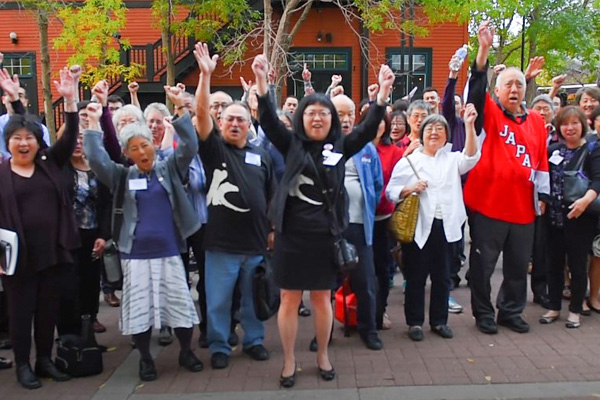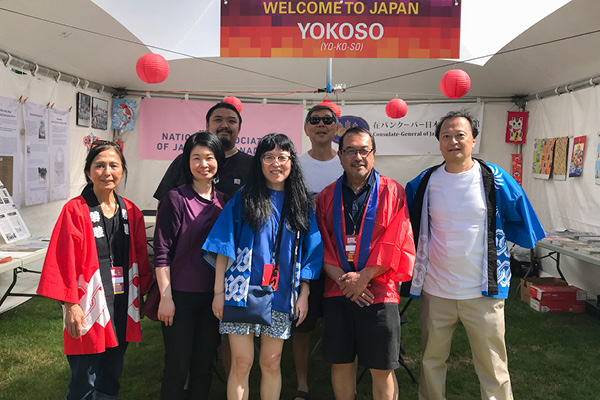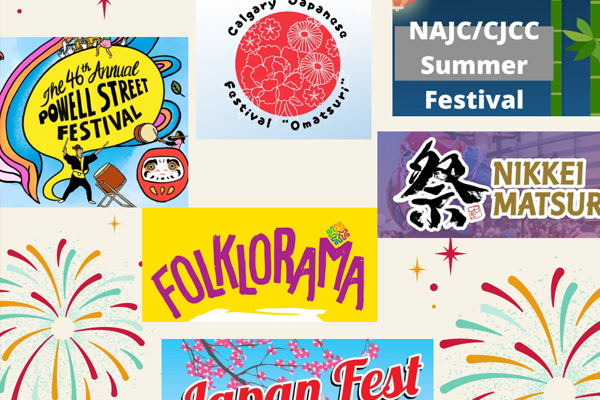by Lorene Oikawa
May 21, 2022. A historic announcement is made by BC Premier John Horgan.
“Eighty years have passed since the internment of thousands of Japanese Canadians. Families were uprooted and incarcerated, forced to leave behind the lives they had worked so hard to build. It was a cruel, racist act, and the injustice still resonates today,” said Premier Horgan. “We are committing this new funding to honour the legacies of Japanese Canadians, to continue the healing of intergenerational trauma, and to serve as an important reminder of this dark chapter in B.C.’s history.”
Read the Media Release: https://bit.ly/3PHqPqS Watch the recorded live stream: https://bit.ly/38jjBZa
On behalf of the National Executive Board, I want to thank the Japanese Canadian community and our member organizations for their incredible support. So many have contributed since we first started on our journey in 2017. Our first meeting with Premier John Horgan was in 2018. Tsugio Kurushima, Rick Ogasawara, Eiko Eby, George Uyeda with then President David Mitsui and I presented the case for working with the Japanese Canadian community as a follow up to the 2012 apology. Thank you to Premier Horgan and the BC government for taking meaningful action.
Also, special thanks to my amazing colleagues Susanne Tabata and Paul Kariya on the Negotiating Committee. As the BC Redress Project Director Susanne has put in a lot of time and effort to take our initiative to the finish line. The work on this is very personal for all of us. It’s about our families, your families, and honouring our ancestors and survivors.
Our work continues…
Some dates to remember for this month include June 25 at 11 a.m. Pacific for the Online National Outreach Meeting for The Anglican Healing Fund for Japanese Canadians with guest speaker Dr. Nicholas Harrison. A link to the event and event information will be posted at https://bit.ly/3tmHKEU You will be able to find out about available healing support for those who were affected by the abuse by a former Anglican priest (Nakayama).
Congrats & thanks to Tsugio Kurushima President of the Victoria Nikkei Cultural Society (VNCS) & the VNCS for their work & financial contributions for the feature interpretive wall inside the new Gorge Park Pavilion commemorating the Japanese-style tea house that was once at the site. Once the details are known, we will post info about the grand opening happening this month.
Also, on Vancouver Island, June 17-19, 2022 marks the 37th anniversary of Miners Memorial in Cumberland.https://minersmemorial.ca/ It’s an annual event that brings together community members, organizers, activists, historians, musicians and the labour community to commemorate the workers who were in one of the most dangerous working conditions in Canada. Before the uprooting in 1942, there were many Japanese Canadians who lived and worked near #5 and #1 mines like my maternal ancestors who arrived in the 1800s. One of the touching tributes for me at previous Memorials is the visit to the Japanese Canadian cemetery – Japanese Canadians were not allowed to be buried in the main white-only cemetery. Chinese Canadians also have their own cemetery.
Sadly, anti-Asian racism is still with us and just this past week, a senior in Vancouver’s Chinatown was attacked with bear spray, and my Chinese Canadian and Japanese Canadian friends were physically and verbally accosted at a local shopping centre in Metro Vancouver. We must continue to call out racism, take action, and educate people so more allies take action and speak up too.
June 21 is National Indigenous Peoples Day and while we recognize the culture and achievements of Indigenous peoples across Canada, we will take a moment to remember the dark history of our country and the need to continue to work on reconciliation. Last month, the National Executive Board shared our thoughts for the one year anniversary of the heartbreaking news of the 215 (and now believed to be a higher number of) unmarked graves of children near the former Kamloops Indian Residential School. We stand with the survivors of residential schools and their families and think of so many more families who never saw their children return. We offer our support to the Tk̓emlúps te Secwépemc First Nation who refer to the missing children as Le Estcwicwe̓y̓. We honour Le Estcwicwe̓y̓ and continue our learning. We urge all Canadians to show their support and learn about the history of Indigenous peoples and the Calls to Action from the Truth and Reconciliation Commission. For those who are experiencing any distress because of their residential school experience please call the national Indian Residential School Crisis Line 1-866-925-4419 for support which is available 24-hours a day. Our full statement is at najc.ca
We continue to highlight facts and Japanese Canadian stories from 1942, the beginning of the incarceration / internment with forced uprooting, dispossession and exile. Eighty years ago, on June 29, 1942, under Order-in-Council P.C. 5523 Director of Soldier Settlement is given authority to buy or lease confiscated Japanese Canadian farms. 572 farms are turned over without consulting owners. Farms will be given to veterans of the Canadian armed forces.
Share a brief story about your family in 1942. It’s also the NAJC’s 75th anniversary so also share your family’s involvement in some of the NAJC activities and events since 1947. Email your ideas, family stories and photos to national@najc.ca
Keep up to date with NAJC news & events by signing up to the NAJC e-news at https://najc.ca/subscribe/
If you are interested in serving the national Japanese Canadian community, have ties to the community, and have the ability to prioritize the national Japanese Canadian community and serve on a national level, consider running for the National Executive Board. Deadline for nominations is June 25, 2022.
The National Executive Board wishes you special family time with the important father figures in your life especially on Father’s Day. Along with the moms who were forced to take on the role of father, we do want to thank the dads and grandfathers. We know it was a struggle for our ancestors and survivors of internment/incarceration. We will continue to share your stories and keep you close in our hearts.



